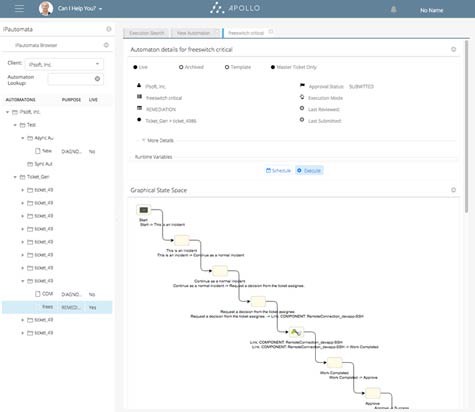Self-service IT has been a major trend in IT circles for quite some time now, but now virtual assistants are about to transform the way IT services are delivered in a way most IT organizations never imagined.
This week IPsoft previewed an Apollo service through which end users can directly interact with a virtual IT administrator to request everything from being able to access a printer to provisioning IT resources for an application development project. The service is due out in the third quarter of this year.
IPsoft CEO Chetan Dube says the days when business users and developers needed to directly interact with a physical IT administrator are coming to a close. We will see hundreds of thousands of virtual assistants capable of addressing just about every Level One support issue as well as most Level Two support issues, says Dube.
At the heart of the Apollo system is a cognitive computing framework based on an Amelia virtual assistant that IPsoft created and is integrated with an autonomic IT management framework that IPsoft uses to automate the delivery of managed IT services. Dube says the merger of cognitive computing and IT autonomics is going to be a seismic event in the long history of IT.
Dube made it abundantly clear that most IT organizations in the future will be a shadow of their current size. Those that remain in IT operations will be able to focus more on creating digital business applications. But once a virtual assistant learns how a process works it will automatically apply that process when confronted with a similar request.
Virtual digital assistants, notes Dube, are starting to become standard elements of a wide variety of consumer applications. It’s only a matter of time before advances in cognitive computing make it possible to apply the same “bot” concept to IT operations. It’s unlikely, says Dube, that these bots will ever be able to create an application. But the processes associated with managing the IT operations environment needed to support those applications can be fully automated using bots that understand requests made using standard text or speech recognition interfaces, says Dube.
It’s already clear that IT automation is going to eliminate most entry-level IT jobs in the not-too-distant future. The challenge facing organizations now is figuring out just what the IT department of the future will be in regard to staffing. The one thing that is certain is that there will be a need for fewer IT operational specialists. In their place will be IT generalists that, with help from virtual assistants, will be able to address a much broader range of IT issues. IPsoft may be the most vocal about the implications of these changes, but there’s no doubt that other vendors are pursuing similar initiatives, e.g., IBM’s Watson, Amazon’s Alexa, Microsoft’s Cortana and Apple’s Siri.
Of course, this vision of the future of IT operations may not sit well with everybody in those roles today, but there’s some consolation in the fact that advance warnings at least provide some time to start leveling IT skill sets beyond the range that could be handled by a virtual assistant.




